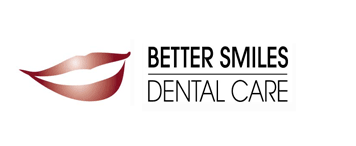If you find yourself with jaw pain in the morning or an aching head, you may have something called bruxism. Whether you’re grinding your teeth at night or during the day, this seemingly benign condition can lead to massive pain and dental bills if left untreated.
In fact, sleep bruxism is reported by 8.6 percent of the general population with no difference between genders. It’s important to keep in mind that once you go to your dentist for help, some simple fixes can help relieve the pain and improve your quality of life.
Read on to learn about the top six signs of bruxism you need to know in order to get dental treatment today!
What is Bruxism?
You can think of bruxism as a word for teeth clenching and grinding that’s usually done while you’re asleep. Although this may not bother you for the short term, in the long term you may experience dental issues, jaw pain, and even headaches and migraine from the temporomandibular joint disorder (TMJ) that may occur.
Grinding your teeth while you’re asleep versus while you’re awake are known to be two separate conditions. One of the main differences with sleep bruxism is that people are unaware that they’re grinding their teeth while they’re asleep.
People can clench their teeth with up to 250 pounds of force, leading to teeth damage and more.
Top Signs of Bruxism
It’s important that you know some of the signs of bruxism so that you can get treatment as soon as possible. Left untreated, you can experience further pain and damage to your teeth.
1. Jaw and Tooth Pain
One of the major indicators that you have bruxism is that you frequently wake up with jaw or tooth pain. Your jaw muscles may feel as if they’re aching as well as tense.
You may also be confusing the pain in your jaw, which can radiate all the way through your facial area, for sinus pain. Tooth pain may also feel like a dull ache.
2. People Notice You Grind Your Teeth
Another big indication that you’re suffering from bruxism is if a partner or family member notices that you grind your teeth at night. This is something you need to take seriously, especially if you snore or your breathing starts and stops while you’re sleeping as well.
This is because bruxism is often closely related to sleep apnea. If you find that you’re fatigued during the day even after eight of sleep, this could be an indication that you’re not sleeping correctly at night. Getting treatment for bruxism or sleep apnea could give you the much-needed energy you need.
3. Headaches and Other Pain
Bruxism may be an issue if you commonly wake up with headaches or even migraines. You may also find that your neck is sore even if you don’t think you’ve slept in an awkward position during the night.
This is because the tension in your jaw over time can radiate to other nearby parts of your body. Some people may also feel as if they have an earache when the pain is really coming from the jaw. Tinnitus may also develop due to jaw pain.
Regardless of where the pain is coming from, it’s important you speak with your doctor first in order to rule out other conditions that could be causing the pain.
4. Routine Dental Checkup
Sometimes, there may be no indication that you have bruxism until you go to your routine dental checkup. This is why dental care is necessary because dentists will be able to see whether your teeth are healthy.
If you are grinding your teeth at night, professionals should be able to see whether you fractured the enamel of your teeth or if they seem worn down.
5. Waking Up With Grit
You may wake up feeling grit in your mouth with no apparent source, especially if you make sure to brush your teeth at night.
This grit could be small pieces of enamel that you ground off while you were asleep. The small bits of enamel will feel similar to sand in your mouth. This needs to be taken seriously, as it’s an indication that your teeth are already getting damaged.
6. Enhanced Risk
You have more of a chance of bruxism if you’re experiencing high stress in your life or if you were diagnosed with an anxiety disorder. People with hyperactive, aggressive personalities may also be more at risk for bruxism.
Bruxism can also be a side-effect of new medications you’re taking, recreational drugs, or tobacco, and caffeine. Lastly, you’re more at risk for bruxism if your family has a history of it. Make sure you ask your family members if this is something they’ve ever experienced.
Find Relief for Bruxism Today
It’s important to keep in mind that if you’re experiencing some of the signs of bruxism, you no longer have to suffer in silence. Living with fatigue during the day or headaches in the morning can impact the quality of your life, especially if your teeth are getting damaged at the same time.
One of the best parts about seeking bruxism treatment is that you can finally get relief from the aches and pains you’re experiencing. Although there isn’t an instant cure, your dentist may suggest wearing an appliance while you sleep.
They may also reduce some high spots in your teeth so that they’re no longer bearing the brunt of the impact when you’re grinding them.
Are you ready to learn if you’re in need of bruxism treatment? Get in touch with us today to get started!

